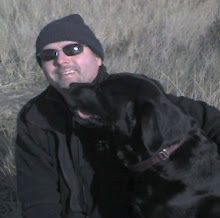Energy Conservation in real life...
So, we're all trying to do our part to reduce our energy usage at home right?
Er... well... uh... not really. Our energy use in our home has roughly doubled in the last year as we added new gadgets and electronics, which of course means a [more than] doubling of the electricity bill as use and rates rise.
As I started researching the biggest "power suckers" in our home, a few of the devices it turned out drew nearly as much electricity while in standby as if they were on 24/7.
The problem comes in that a lot of these interdependent devices have settings that are lost if you completely cut off the power to them. But a number also retain their settings. With that in mind, I went searching for some kind of digitally timed powerstrips to plug stuff into and set power timings on them.
Imagine my surprise to find that what's out there for timed power strips are... well... kludgy at best. There's nothing out there at all that you can plug into your computer and set timings, or create "whole house" energy timing policies with.
The options I did find, were literally impossible to find locally, and I ended up ordering a few of these powerstrips from Intermatic with digital timers on them. While not as elegant a solution, these actually worked out pretty well. We now have about 500w of standy appliances and electronics that power all the way down each night during non-use hours.
We'll be interested to see how these help reduce energy usage (or not) over the next couple of power bills - I'll post results here when the data comes in.
Er... well... uh... not really. Our energy use in our home has roughly doubled in the last year as we added new gadgets and electronics, which of course means a [more than] doubling of the electricity bill as use and rates rise.
As I started researching the biggest "power suckers" in our home, a few of the devices it turned out drew nearly as much electricity while in standby as if they were on 24/7.
The problem comes in that a lot of these interdependent devices have settings that are lost if you completely cut off the power to them. But a number also retain their settings. With that in mind, I went searching for some kind of digitally timed powerstrips to plug stuff into and set power timings on them.
Imagine my surprise to find that what's out there for timed power strips are... well... kludgy at best. There's nothing out there at all that you can plug into your computer and set timings, or create "whole house" energy timing policies with.
The options I did find, were literally impossible to find locally, and I ended up ordering a few of these powerstrips from Intermatic with digital timers on them. While not as elegant a solution, these actually worked out pretty well. We now have about 500w of standy appliances and electronics that power all the way down each night during non-use hours.
We'll be interested to see how these help reduce energy usage (or not) over the next couple of power bills - I'll post results here when the data comes in.
Labels: energy conservation, energy reduction, timed powerstrips

